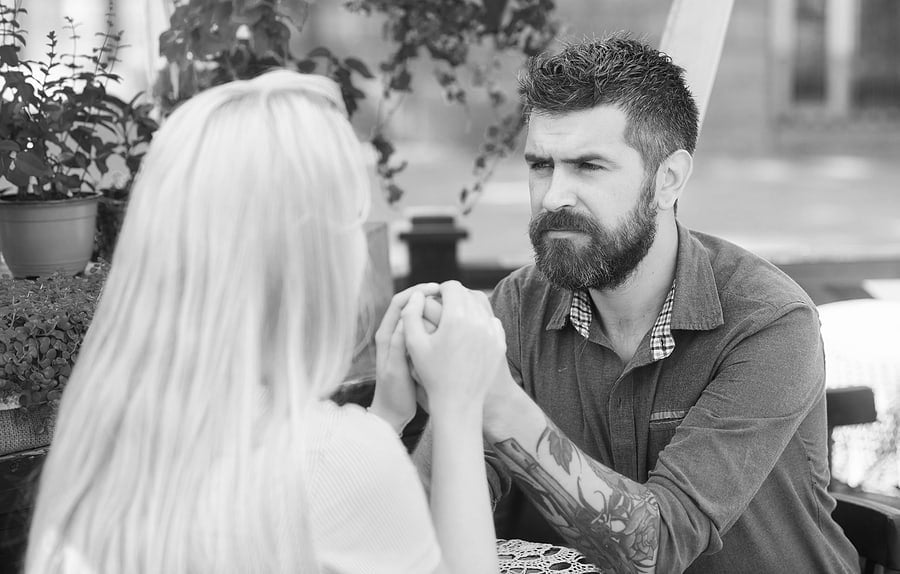- Mend
- Posts
- Moving Beyond the Affair: Crafting a Vision for Your Future Together
Moving Beyond the Affair: Crafting a Vision for Your Future Together
Moving Beyond the Affair: Crafting a Vision for Your Future Together
If you’ve been unfaithful, you already know the weight of what’s happened. You’ve seen the pain in your partner’s eyes, felt the shame of your choices, and probably questioned whether your relationship can ever recover. Here’s the truth: it can. But rebuilding your relationship won’t happen by accident. It requires commitment, transparency, and a clear vision of what you’re working toward.
Recovery isn’t about “fixing” things so they go back to how they were. The old version of your relationship didn’t protect you from crossing boundaries, and it’s not enough to sustain you moving forward. What you’re building now is something entirely new—stronger, more honest, and rooted in the kind of connection that stands the test of time.
Why a Vision Matters
Without a vision, it’s easy to stay stuck in survival mode, constantly revisiting the pain of the past. Your betrayed partner is likely trying to make sense of what happened, and you may feel like you’re always on the defensive, trying to prove yourself while battling your own guilt and shame.
A vision for the future gives you both something to hold onto—a reason to keep moving forward even when the process feels overwhelming. It shifts the focus from what you broke to what you’re working to build.
Step 1: Get Real About What You Want
Before you can create a shared vision with your partner, you need to understand what you want moving forward. This isn’t about making vague promises like “I’ll never hurt you again” or “I’ll do better.” It’s about getting specific.
Ask yourself:
What kind of partner do I want to be?
What steps do I need to take to rebuild trust and repair the damage I caused?
What boundaries do I need to set for myself to ensure I don’t repeat these mistakes?
Be honest with yourself. This isn’t about being perfect—it’s about committing to real, measurable actions that show your partner you’re serious about change.
Step 2: Have the Hard Conversations
Once you’ve clarified what you want, it’s time to bring your partner into the process. Sit down and have an honest conversation about what rebuilding looks like for both of you.
Ask your partner:
What do you need from me to feel safe and valued moving forward?
What boundaries should we set together to protect our relationship?
What steps can I take to show you that I’m committed to this process?
These conversations won’t be easy. Your partner might express anger, sadness, or doubt, and it’s your job to stay present, listen, and validate their feelings. This isn’t the time to defend yourself or make excuses. It’s about showing them that you’re willing to face the discomfort because they matter to you.
Step 3: Create a Blueprint for Change
Together, start crafting a vision for what your relationship can look like moving forward. Be as specific as possible—this isn’t the time for vague ideas or wishful thinking.
Think about:
Communication: How will you both express your feelings, concerns, and needs moving forward?
Boundaries: What guardrails will you put in place to protect your relationship from outside influences?
Connection: What habits or routines can you build to stay close and nurture your relationship?
For example, maybe you commit to weekly check-ins where you both share what’s on your mind. Maybe you agree to full transparency when it comes to your phone, social media, or work trips. Whatever it is, make sure it’s actionable and clear.
Step 4: Commit to Transparency and Accountability
Rebuilding trust is a long process, and it starts with transparency and accountability. Your partner needs to see, not just hear, that you’re serious about change.
This means being an open book—no more secrets, no more half-truths. If your partner asks you a question, answer it honestly, even if it’s uncomfortable. If you mess up, own it immediately and show how you’re working to make it right.
It also means being proactive. Don’t wait for your partner to ask for reassurance—offer it freely. Show them that you’re thinking about their needs and taking steps to rebuild trust without being prompted.
Step 5: Focus on Connection
While you’re doing the hard work of rebuilding trust, don’t lose sight of why you’re doing it in the first place—because you care about your partner and want to share a life together.
Make time to reconnect in meaningful ways. This could be as simple as spending uninterrupted time together each day or planning activities that you both enjoy. Find ways to show your partner that they matter to you—not just in words, but in actions.
Remember, connection isn’t about grand gestures; it’s about showing up consistently, being present, and making your partner feel valued and loved.
Step 6: Be Patient with Yourself and Your Partner
Here’s the thing: this process is going to take time. Your partner isn’t going to forgive you overnight, and you’re not going to have all the answers right away. You’re both going to make mistakes, and that’s okay. What matters is that you keep showing up, keep trying, and keep working toward your shared vision.
Patience is key—not just with your partner but with yourself. It’s easy to let guilt and shame consume you, but those feelings don’t help you move forward. Acknowledge them, learn from them, and then focus on what you can do today to make things better.
Final Thoughts
Moving beyond the affair isn’t about erasing the past or pretending it didn’t happen. It’s about using the pain as a catalyst for growth—for creating a relationship that’s stronger, more honest, and more fulfilling than what you had before.
Crafting a vision for your future together isn’t easy, but it’s worth it. When you and your partner can look ahead and see a shared goal, it gives both of you the strength to push through the hard days and the hope that better ones are coming.
So, take the first step. Sit down, get honest, and start creating a blueprint for the life you want to build together. Your future isn’t defined by your mistakes—it’s defined by what you do next.
Learn from My Experience (and Mistakes)
If you're struggling to navigate the aftermath of an affair and need guidance from someone who's been there, let's work together. Sign up for one-on-one coaching sessions with me and start your journey toward healing and rebuilding trust.
“To conquer fear is the beginning of wisdom."

Individual Coaching for Unfaithful Men & Women
Embarking on a journey of healing and personal growth after infidelity is a courageous step towards rebuilding trust and creating a brighter future.
With Doug's guidance and support, you will have the opportunity to delve deep into self-exploration, understand the root causes of your actions, and develop the necessary tools for personal transformation.
Our individual coaching program for unfaithful men and women offers a confidential and non-judgmental space, where you can find guidance, accountability, and support tailored to your unique needs.
Take the first step towards healing and rebuilding trust by investing in yourself and discovering the path to a more fulfilling and authentic life.
From the World of Self-Improvement
Relationships
Emotional/Mental Well-being
Personal Growth
Physical Well-being
Professional & Financial
Whenever you’re ready, there are 2 ways we can help you:
1. If you’re still looking for traction in your affair recovery experience, we’d recommend starting with an one of our affordable programs. Here are 2 options:
→ Survive and Thrive after Infidelity – A unique and complete resource that will guide you through the recovery and healing process starting at D-day. It will provide you with the knowledge and tools to not only survive the affair, but thrive! Get started now!
→ The Unfaithful Person’s Guide to Helping Your Spouse Heal From Your Affair: For the struggling unfaithful person, this program delves into the 24 ‘tasks’ that the cheater must complete for them to move from betrayer – to healer, while gaining a better understanding of their betrayed partner and what he/she is going through. Become a healer.
2. Individual Mentoring – Whether you’re the betrayed or the betrayer, to talk to someone who has gone through what you’re going through and who can listen and empathize with you is an incredibly powerful and valuable thing. It’s not just sympathy – it’s empathy – and it’s irreplaceable. Reserve a session (limited spots available).
Take care!
Linda & Doug
You are receiving this email because you signed up for the Mend newsletter.
Was this email forwarded to you? Get your own sub here.












